Tour de France time trial to set the scene for the high mountains – Preview
GC riders calculate losses to Geraint Thomas as Wout van Aert eyes the win
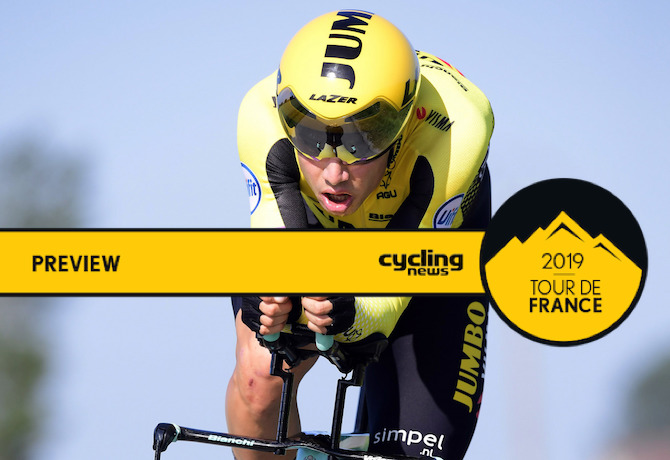
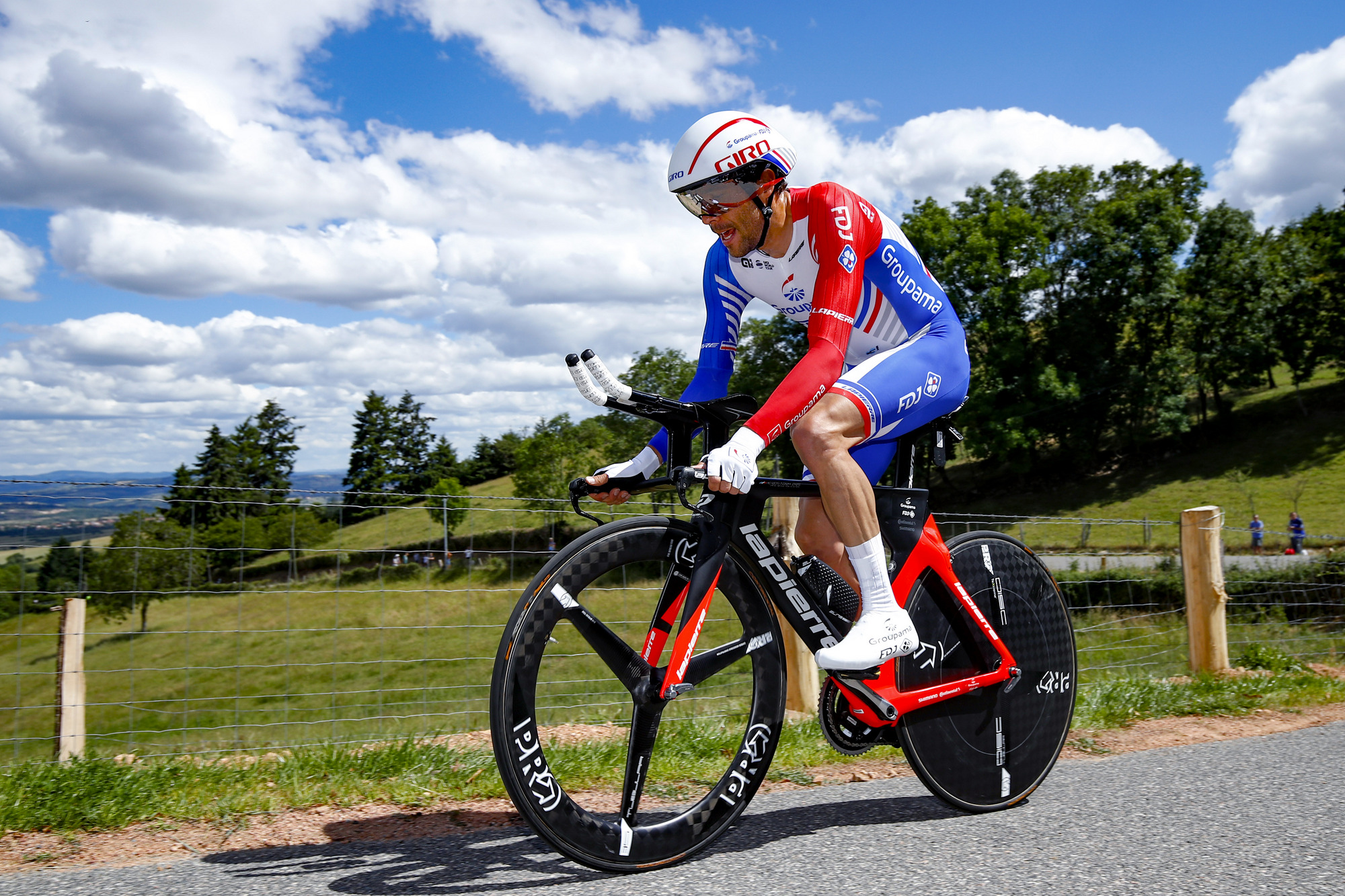
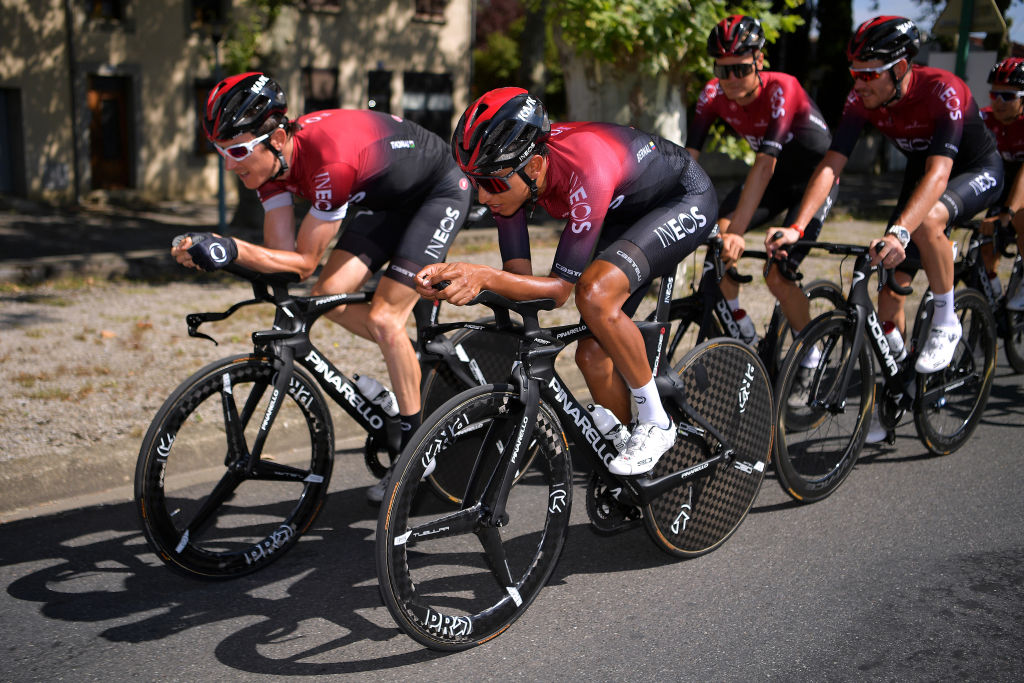
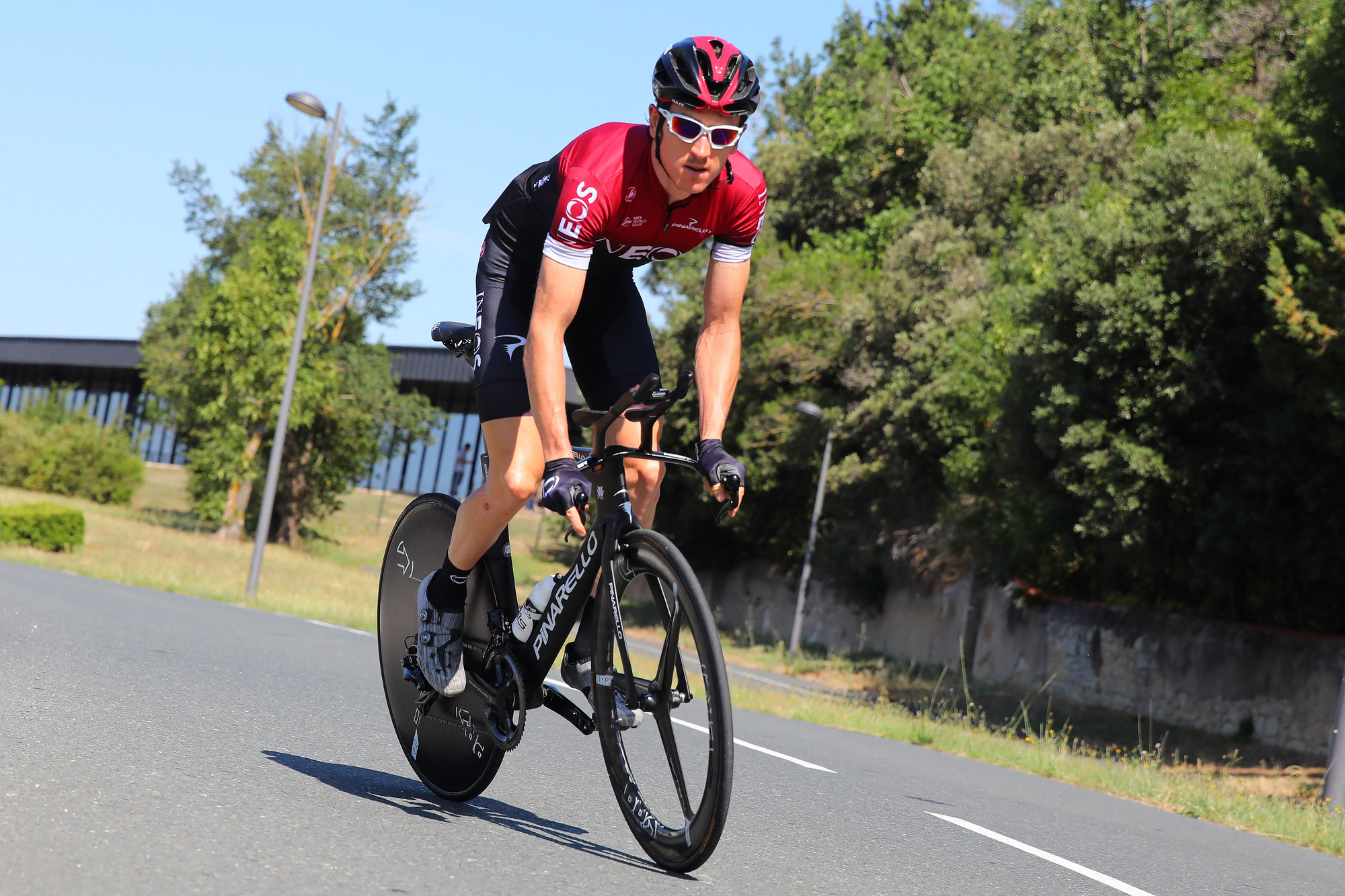
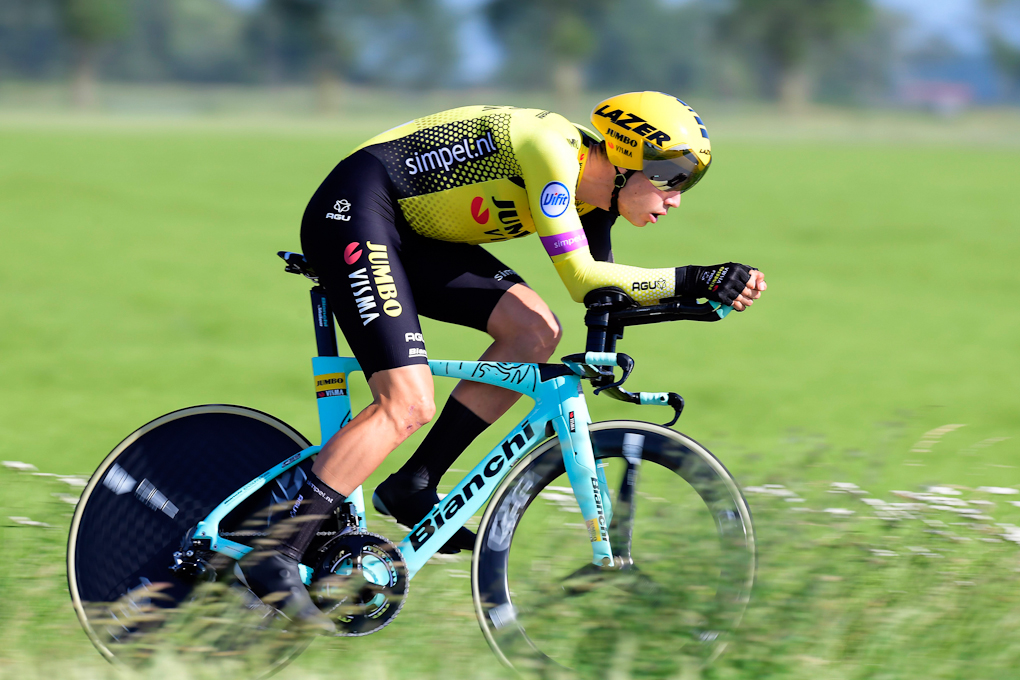
The 2019 Tour de France's first foray into the high mountains for stage 12 on Thursday passed by without so much as a whimper, with the main bunch rolling home nearly 10 minutes behind the breakaway. The summit finishes on the Col du Tourmalet and Prat d'Albis, looming large on the weekend horizon, surely contributed to the detente, but Friday's individual time trial in Pau was perhaps at the very forefront of everyone's minds.
2019 Tour de France: Stage 13 preview
Tour de France: Van Aert raises his own bar with exceptional sprint win
Bahrain-Merida launch investigation after Rohan Dennis quits Tour de France
Tour de France: Portal says Thomas and Bernal will not race each other in TT
Tour de France: Bahrain-Merida left wondering at Dennis' sudden abandon
Such is the importance of the so-called 'race of truth' in the modern Tour. The organisers have steadily chipped away at the number of kilometres ridden against the clock in recent years, only for them to have just as big a say in shaping the general classification.
By placing the Pau ITT after the opening Pyrenean stage, the organisers sought to interrupt the first mountain 'block', but if they were trying to coax climbers to gain time in advance of their time trial losses, it had the opposite effect. With the time that can be won and lost against the clock these days, the 30km run from the Hourquette d'Ancizan down to Bagneres-de-Bigorre was considered too much of a gamble, and the GC battle was put on hold.
Apart from 800 metres of action at the very top of La Planche des Belles Filles on stage 6, the greatest developments GC-wise came in the crosswinds on stage 10. The stage 2 team time trial gave the standings some definition, but the stage 13 individual time trial will go further. When it's done, the relatively low number of time trial kilometres at this Tour will be out of the way, before a high mountain has been raced in earnest. It will set the tone and form the framework around which the race will unfold in the Pyrenees and Alps.
The course
The stage 13 individual time trial is a circuit course starting and finishing in Pau and measuring 27.2 kilometres. The opening kilometre takes them through the centre of Pau before they head over the river and south away from the city. They continue south on undulating roads before turning west to Gan and back north towards Pau. They head over a different bridge and into the city before a final steep ramp takes them to the finish at the Place de Verdun.
Groupama-FDJ's Mathieu Ladagnous is a Pau native, who has already ridden the course a number of times, and he took us through the challenge.
"You can roughly split the course in two. The first part is pretty hard, and the second half is mostly flat," he said.
The latest race content, interviews, features, reviews and expert buying guides, direct to your inbox!
"It's undulating for around 15km – always up and down, climb-descent-climb-descent, small steep ramps, back down, false flats… You're always on it. There are just two descents where you have to pay attention, and there's maybe one dangerous corner, but it's not really technical at all. The roads are all big and well surfaced, too. The last part is all flat, but there is a short kick up with 200 metres to go, and it's around 17 per cent.
"It's a course for rouleurs-grimpeurs like Geraint Thomas [Team Ineos] – for me, he's the big favourite, and the other guys like Thibaut Pinot will have to try to not lose too much time. It's a parcours that suits them in the first part, then not so much in the second. You need to save some strength for the last part, and if there's a headwind that will make it very difficult indeed."
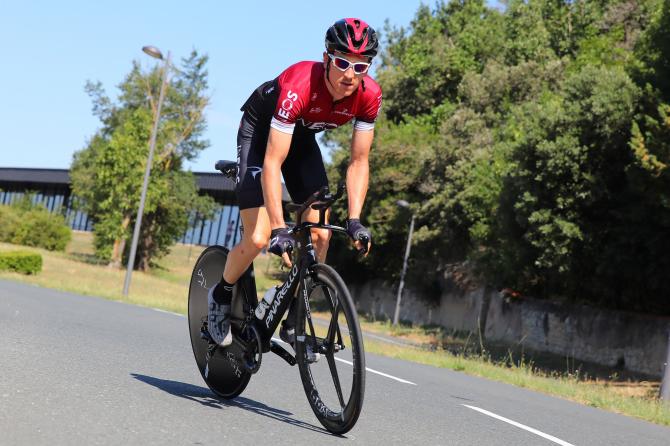
Damage limitation
The absence of the world's two leading time triallists opens the door to a wider range of contenders. 2017 world champion Tom Dumoulin (Sunweb) did not start the race due to a knee injury, while current world champion Rohan Dennis (Bahrain-Merida) abandoned on Thursday in a cloud of mystery. There's also, of course, no Chris Froome, who has won two Tour de France time trials and finished second behind Dumoulin on the penultimate stage of last year's race.
As such, the name on everyone's lips is Geraint Thomas. The Welshman finished third on that penultimate stage last year, and has a top-level time trialling pedigree that stretches back to his Olympic gold-medal-winning days as a pursuiter on the track. Ladagnous immediately picked him out as the favourite, as did Mitchelton-Scott director Matt White.
Thomas won back-to-back mountain stages last year and is the only rider in the Tour who can reasonably claim to be a specialist in both fields. His teammate Egan Bernal is solid against the clock, as is Steven Kruijswijk (Jumbo-Visma), while the mercurial Thibaut Pinot (Groupama-FDJ) has been known to pull the odd half-decent TT out of the hat, but Thomas stands alone ahead of what can largely be described as a field of climbers.
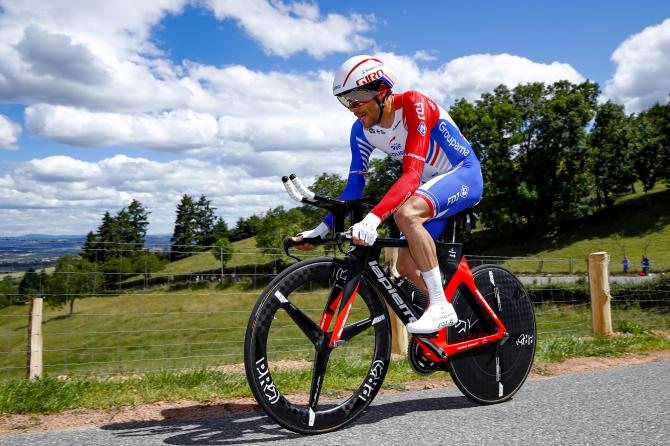
The name of the game for all involved will be damage limitation.
"I think we'll see gaps of between 30 seconds and a minute," Adam Yates' sports director Matt White told Cyclingnews. "A minute would be the bad end of the scale, while a lot of the guys would be quite happy with 30 seconds.
"Taking Geraint out of the picture, I don't expect big margins between the guys. I wouldn't be surprised to see Pinot do well tomorrow – it's a course that, if he's time trialling well, suits him. As for Adam, losing 30 seconds is very very optimistic; that's nearly a second per kilometre. It'll be somewhere between 30 seconds and a minute."
While Yates has followed his brother in showing improvements against the clock, he could sit in the middle of that range. The most likely to keep losses to a minimum are Kruijswijk, Jakob Fuglsang (Astana), and Emmanuel Buchmann (Bora-Hansgrohe). Bernal was sixth in the Paris-Nice time trial and 11th at the Tour de Suisse, so while he probably won't get closer to Thomas, he should pull away from plenty of others.
On the weaker side, Romain Bardet (AG2R La Mondiale) has a terrible record against the clock – barring a mountainous Tour TT in 2017 – and his team's poor display in the stage 2 TTT hardly bodes well. They've said they're aiming to keep the damage to a minute, but that seems optimistic. Nairo Quintana (Movistar) and Dan Martin (UAE Team Emirates) have traditionally fared better, but it's still a problem area. Pinot, meanwhile, remains something of an enigma. He won the French time trial title and a stage at the Tour de Romandie in a 2016 purple patch, but has also been known to ship chunks of time. Richie Porte (Trek-Segafredo), another former national champion, is similarly difficult to predict.
And then there's Julian Alaphilippe (Deceuninck-QuickStep) – the leader of the Tour de France after 12 stages. How far can he go? Only time will tell, but despite the talk of him going "as deep as possible" to "defend the jersey with honour", he should be reasonably confident of remaining in yellow.
He leads by 1:12 over Thomas, with Bernal third at 1:16. Thomas will surely eat into that gap, but in order to take yellow, he would need to put more than two-and-a-half seconds into Alaphilippe every kilometre. Given Alaphilippe's pedigree, that's unlikely to happen. The Frenchman won the Paris-Nice time trial in 2017, along with one at the Vuelta a San Juan in January. In individual time trials this year, he finished fourth at the Tour of the Basque Country and seventh at the Dauphine.
Van Aert and co
Thomas is the one key reference point as far as the general classification contest is concerned, but there's also battle for stage honours, which should be a closer call, with a wider range of candidates.
"I'll go all out and see where that puts me," Thomas said after stage 12. "It would be great to win the stage, but Wout van Aert is my favourite."
Indeed, Jumbo-Visma's precocious Belgian is the other major contender for what would be a second stage victory at his debut Tour de France. He has shone in the spring Classics in the past two years, but his transition from cyclo-cross to road has taken on even more surprising dimensions in the last month as he won two stages at the Criterium du Dauphine and beat Elia Viviani and Caleb Ewan in a sprint at this Tour.
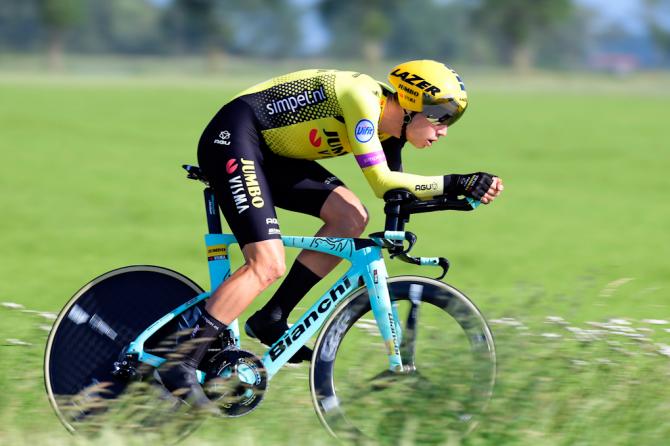
One of his Dauphine wins was a time trial, and very similar to this one – just one kilometre shorter and with a climbing element. That day he didn't just win; he wiped out the competition, beating Tejay van Garderen (EF Education First) by 31 seconds and Dumoulin by 47. Having come into the Tour trying to play down any sense of ambition or expectation, Van Aert is now open about the fact he wants to win the time trial, explaining he sat up and took Thursday's mountain stage as easy as he possibly could.
"When you are in the Tour, you have to make choices. Tomorrow is a great opportunity, and I certainly kept that in mind today," he said. "There was no risk that we would finish outside the time limit, so I could take it easy. It was roughly at training pace. A lot of people are using up energy, and the general classification guys certainly couldn't take it as easy as me today.
"I'll certainly do my best. I've already given a lot in this Tour, have already wasted strength, and you cannot predict such a time trial in advance, but I've still felt very good in the last few days," he said.
Jumbo-Visma have two viable cards, with four-time world champion Tony Martin also in with a shout. In the past few years he has struggled to showcase the kind of form that led him to those world titles, but he looks rejuvenated in his Jumbo colours in the past few months.
Stefan Kung (Groupama-FDJ) is another time trial specialist, while Chad Haga (Sunweb) will be full of confidence after his time trial win at the Giro d'Italia. As well as Thomas, Team Ineos have Jonathan Castroviejo and Michal Kwiatkowski, although it remains to be seen to what extent they're permitted to open the taps. Deceuninck-QuickStep have Yves Lampaert and Kasper Asgreen, although the latter is far from fresh. Alex Dowsett (Katusha-Alpecin) and Nelson Oliveira (Movistar) are two more specialists who could be up there.
Once the dust has settled, the scene will be set for the battle for the yellow jersey in France's two high mountain ranges. However, exciting as that sounds, there's also the fear that, should Thomas perform to his full potential, he and his team will be in complete control and we may not get much of a battle at all.
Patrick is a freelance sports writer and editor. He’s an NCTJ-accredited journalist with a bachelor’s degree in modern languages (French and Spanish). Patrick worked full-time at Cyclingnews for eight years between 2015 and 2023, latterly as Deputy Editor.
